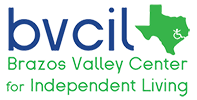Many parents of youth approaching adulthood worry about their child’s future. Whether youth have disabilities or not, parents want to know what they can do to help their sons and daughters decide on a career, support their job hunting, and succeed in the workplace. One way family members can help is by working with and encouraging youth to develop soft skills. Even though parents may not know this term, they will discover that they are familiar with these every day, common sense skills that are important in all aspects of life. Soft skills help youth succeed in life no matter what they are doing. By improving these skills, a youth can enhance his or her social life, do better in post-secondary studies, and be more successful at finding and maintaining employment. Families can use several strategies to help develop soft skills.
The National Institute for Literacy (NIFL) conducted research called the Equipped for the Future Framework (EFF) which addresses some key foundational “hard skills,” specifically reading, writing, and math skills, along with the important soft skills needed not only in the workplace but as members of families and society.
The EFF skills include:
Communication Skills
-Read with understanding
– Convey ideas in writing
-Speak so others can understand
– Listen actively
-Observe critically
Interpersonal Skills
-Guide others
-Resolve conflict and negotiate
-Advocate and influence
-Cooperate with others
Decision Making Skills
-Use math to solve problems and communicate
-Solve problems and make decisions
-Plan
Lifelong Learning Skills
-Take responsibility for learning
-Reflect and evaluate
-Learn through research
-Use information and communications technology
… Stay tuned for more on this topic…
This document was developed by the National Collaborative on Workforce and Disability for Youth, funded by a grant/contract/cooperative agreement from the U.S. Department of Labor, Office of Disability Employment Policy



